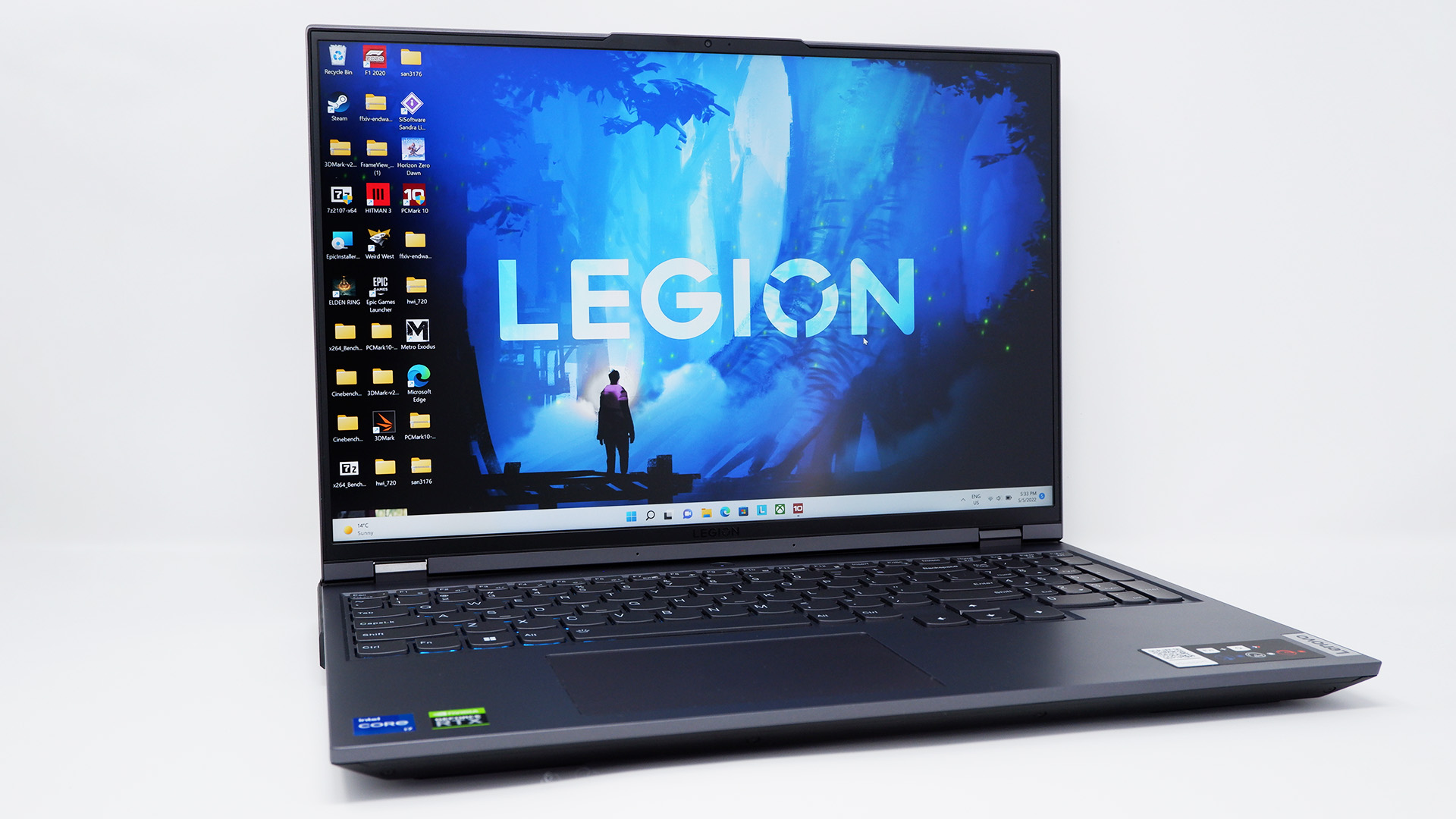Our Verdict
A snappy laptop with impressive CPU performance. The Lenovo 5 Pro 16 does, however, struggle to justify its high cost for gaming alone in the face of cheaper alternatives.
For
- Strong CPU performance
- Solid chassis
- Fast DDR5 memory
- Supports Nvidia's great laptop features, like DLSS and Optimus
Against
- Cheaper alternatives with last-gen CPUs and comparable GPUs
- DDR5 memory isn't all that useful for gaming performance
- A lot of money for an RTX 3060 laptop
PC Gamer's got your back
The Lenovo Legion 5 Pro 16 isn't as graphically impressive as some of 2022 models we've seen so far this year, and I had hoped that would be reflected in its price. However, it's not. You can pick up an RTX 3060 powered gaming laptop for a lot less than the rough £1,600 Lenovo is asking for a Legion like this. You'll miss out on DDR5 memory and Intel's latest 12th Gen chips with a cheaper model, but even for these somewhat sought after features it's near-impossible to justify this Legion laptop's large price tag.
The exact model of Lenovo Legion 5 Pro I've been using for review isn't available in the US today, but a close match with a slower RTX 3050 Ti can be found listed at $1,780 (though it is 'temporarily unavailable' and that may not be the actual price). It doesn't appear that any 12th Gen Intel Lenovo laptops are available state-side as of yet, but it's not looking like they'll be cheap when they do show up.
Even in the UK, I've been unable to spot a model with a comparable SSD configuration as this review model, but a similar model with 1TB of storage goes for £1,600.
For that fairly large amount of money you're receiving many modern components in the Lenovo Legion 5 Pro: an Intel Core i7 12700H, 16GB of DDR5 4800MHz (effective) memory, a 1TB SSD, 16-inch 1600p IPS panel, and support for Nvidia G-Sync alongside a 165Hz refresh rate. There's a lot here that a PC gamer should be actively looking for in 2022, so the Legion's problem certainly isn't a hardware one.
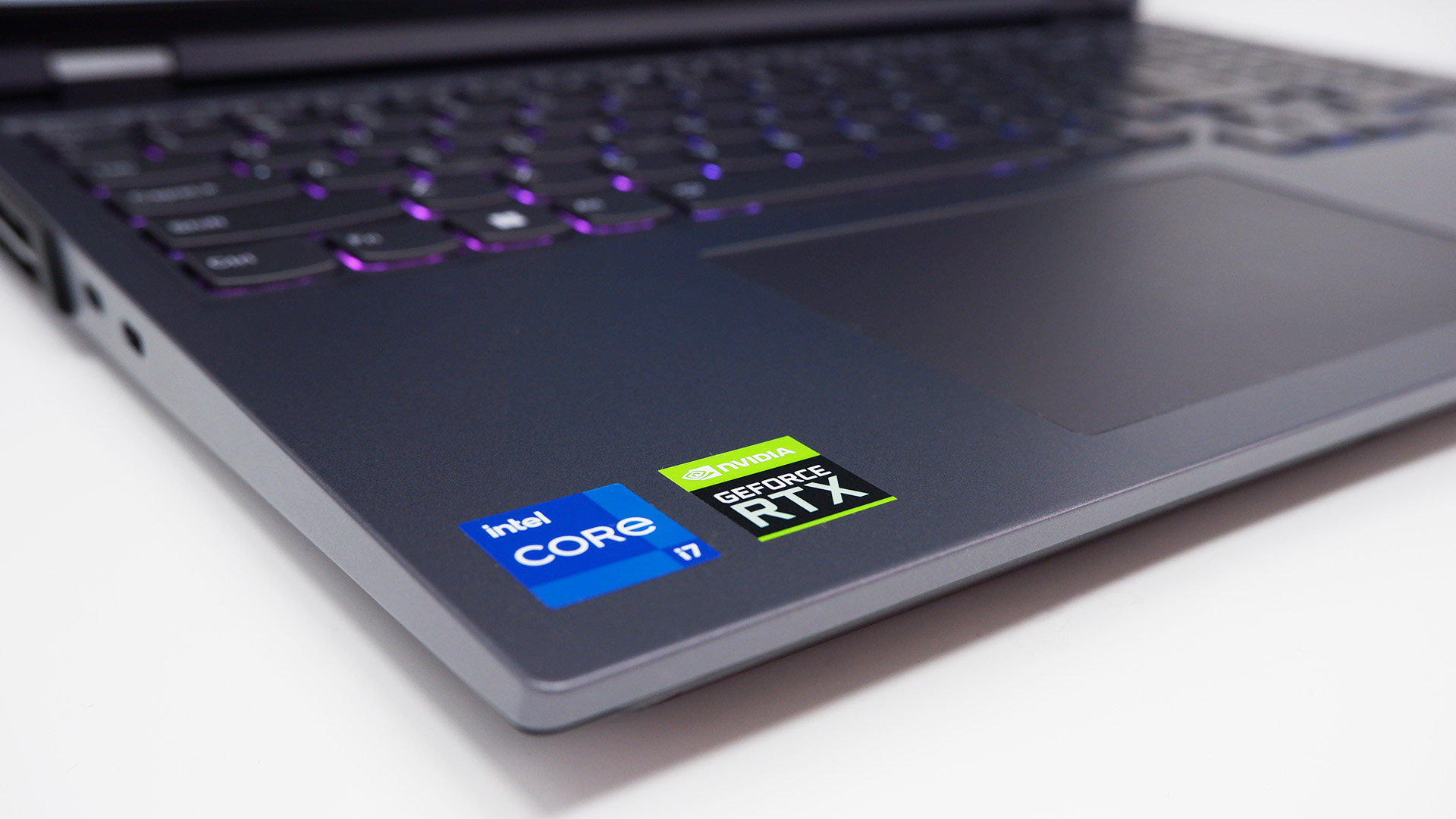
CPU: Intel Core i7 12700H
Cores: 14 (6P | 8E)
Threads: 20
Memory: 16GB (2x 8GB) DDR5-4800
GPU: Nvidia RTX 3060
TDP: 95W
Display: 15.6-inch
Native res: 3840 x 2160
Refresh rate: 60Hz
Storage: 2TB PCIe 4.0 SSD
Price: ~£1,600
For example, that 12th Gen CPU is a superb chip. The Alder Lake architecture is primed for modern day gaming and productivity and the Core i7 12700H in the Legion 5 Pro is a great example of that. The CPU comes with six Performance-cores (P-cores) for low-latency gaming, and eight Efficient-cores (E-cores) for everything else you might throw at this device and background tasks. For a laptop with Pro in its name, you want to see a powerful enough CPU to actually make a dent in CPU-intensive tasks, and the Core i7 12700H is just that. It's also no slouch at 4.7GHz P-core boost (which it's capable of reaching) and 3.5GHz E-core boost, and that's a touch faster than the Core i7 11800H it replaces.
The 12th Gen CPU in the latest Legion 5 Pro is no doubt a step above last year's 11th Gen model, and there are a few other upgrades with 2022's model to speak of.
For one, faster DDR5 memory. There's 16GB of DDR5 stuffed into the Legion 5 Pro. The two stick kit is rated to 4,800MHz (effective), which is a fairly ubiquitous speed for these sorts of SO-DIMM modules in laptops and the base spec for DDR5. We are seeing faster kits start to appear, and more importantly with lower latencies. However, it might be a while until these make it into gaming laptops en masse.
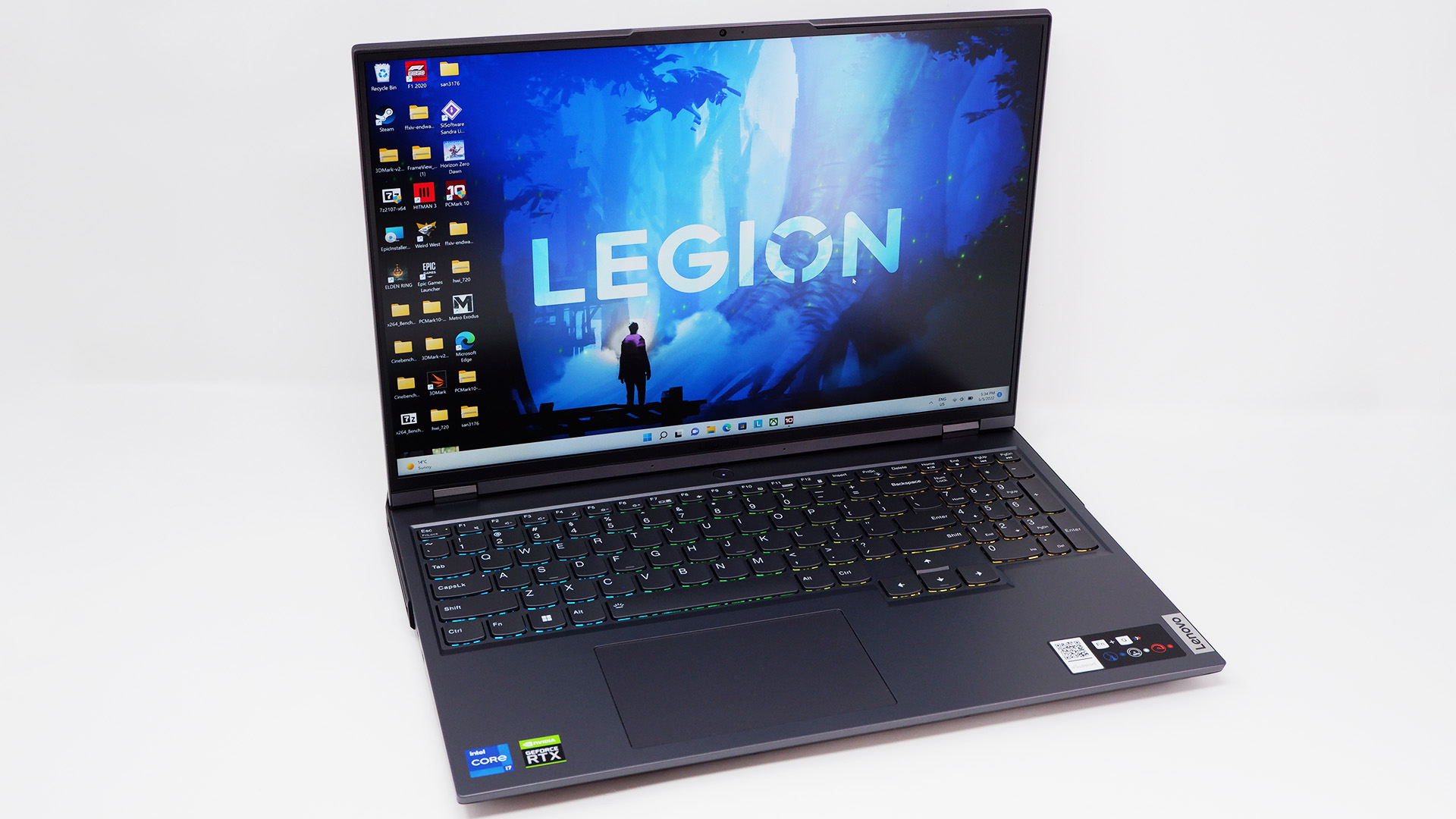
A complete parts list with prices isn't something I'm privy to with the Lenovo, but I'd suspect some of that high price tag is spent on sourcing the DDR5 sticks in this machine—DDR5 is expensive to manufacture, and will likely remain that way until it's supported on more platforms.
You are looking at a much more detailed, and demanding, 1600p screen on this laptop.
The benefit of DDR5 is not often felt in gaming workloads, however, which has the Lenovo leaning more towards the prosumer market than the gaming one. That isn't necessarily a bad thing if you're looking for a laptop with equal ability to churn through spreadsheet and 100s of Chrome tabs as it does frames in the latest games. In Cinebench R20 and Time Spy CPU tests, it absolutely wrecks the other laptops from last generation. But it's worth bearing in mind that you might want to look elsewhere if gaming is first and foremost, as the faster 2022 model is only a few frames faster than other RTX 3060 laptops in the our tests.
The Legion 5 does perform decently well at 1080p, which is how we've largely tested it for the sake of comparative benchmarks with other laptop models. However, you are actually looking at a much more detailed, and demanding, 1600p screen on this particular model. At its native resolution, and making use of that frankly gorgeous IPS 16:10 panel, the RTX 3060 does struggle a little more to deliver the sort of frame rates I'd like to see in this price range.
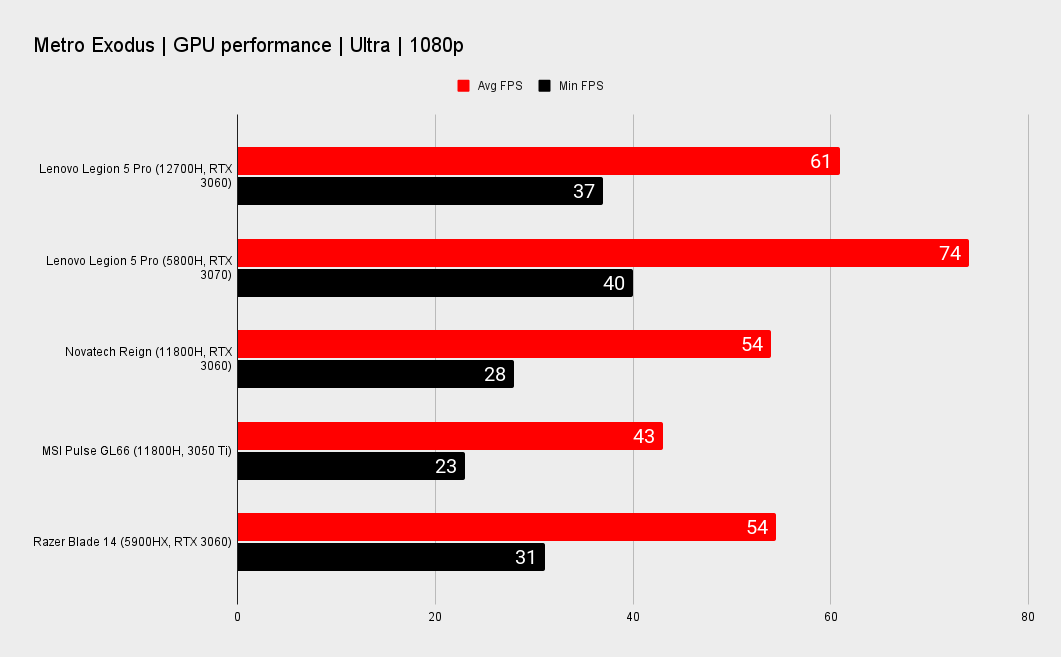
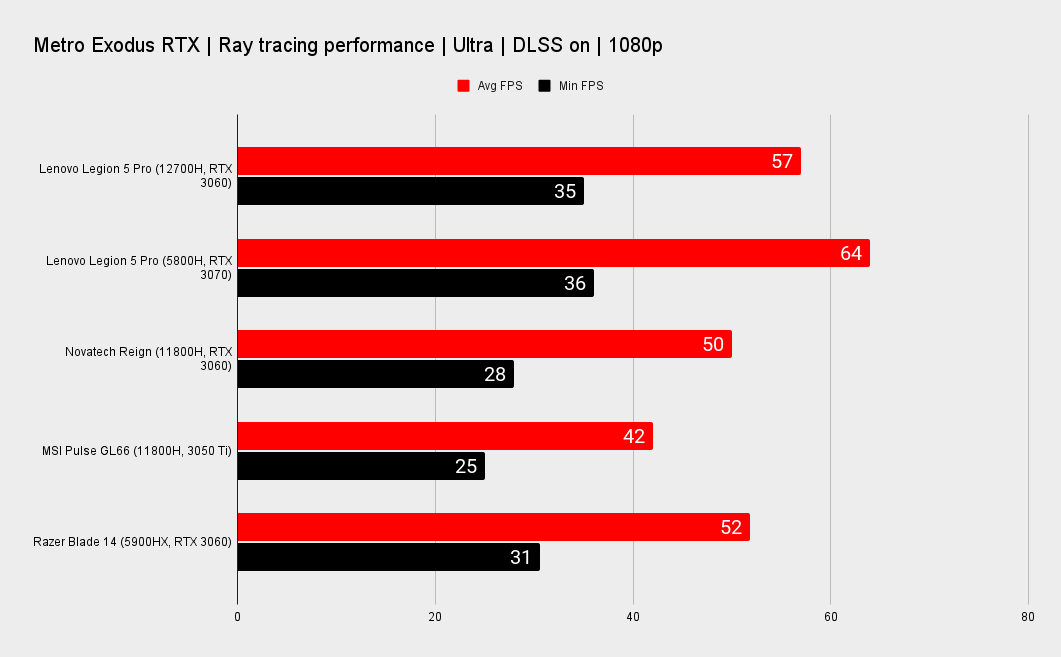
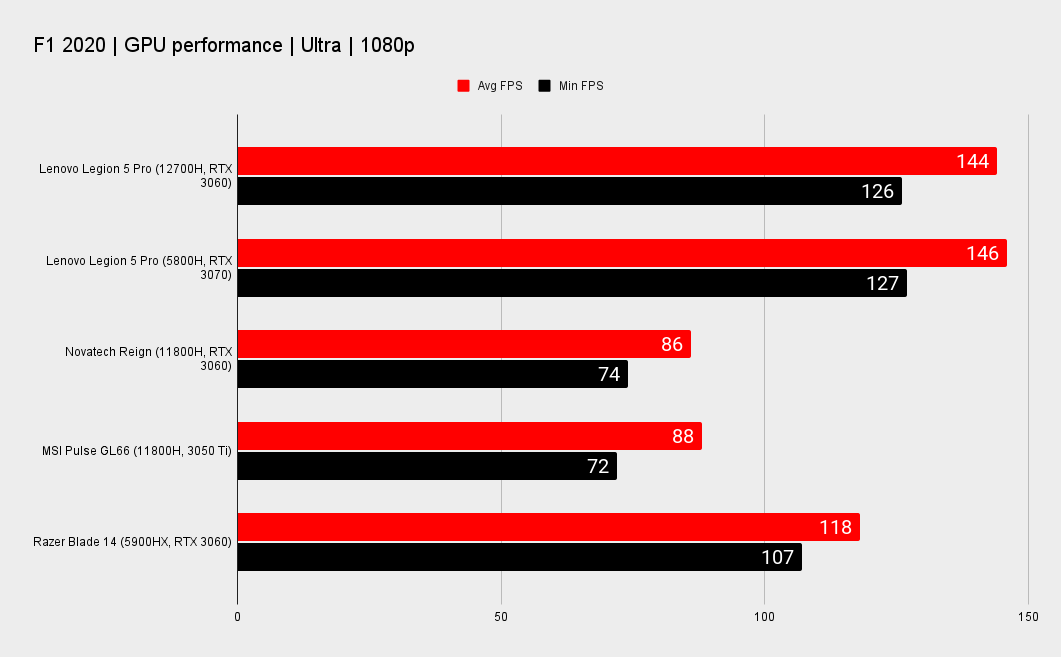
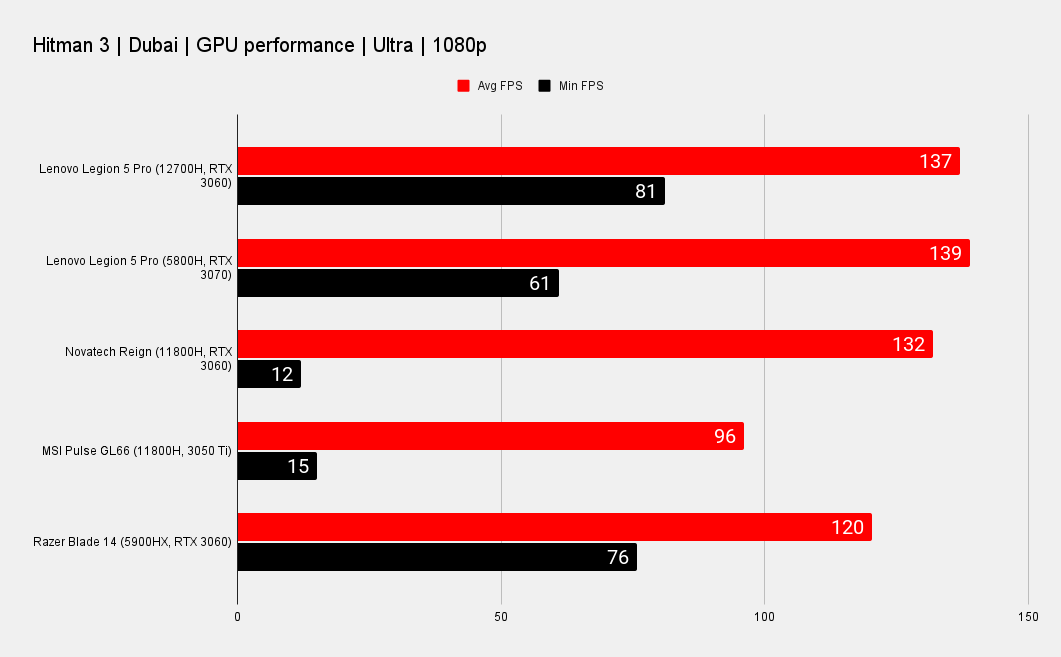
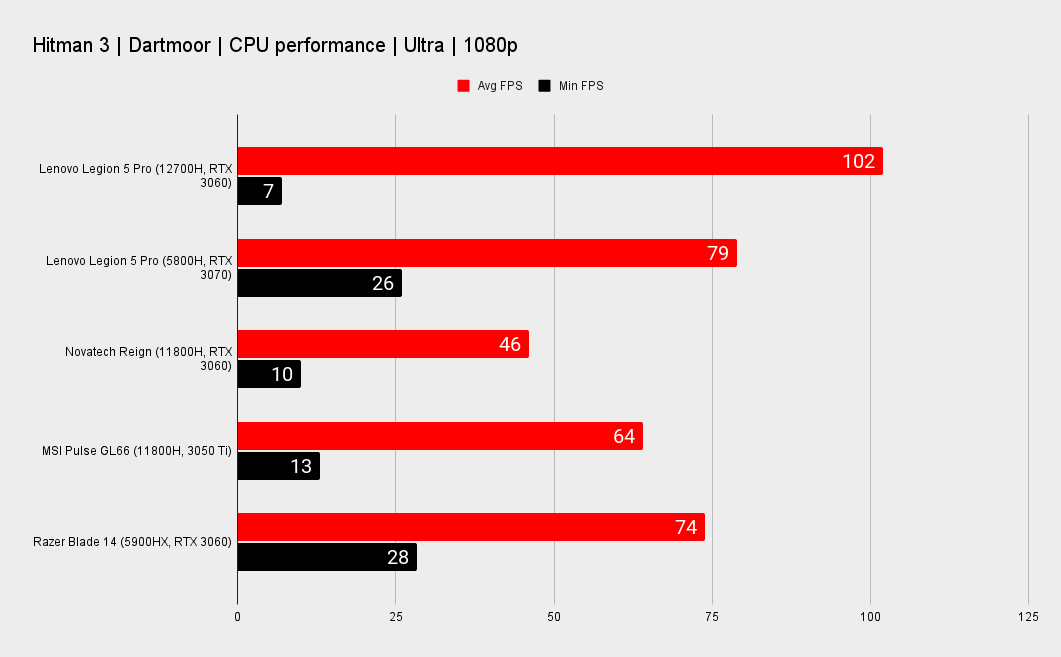
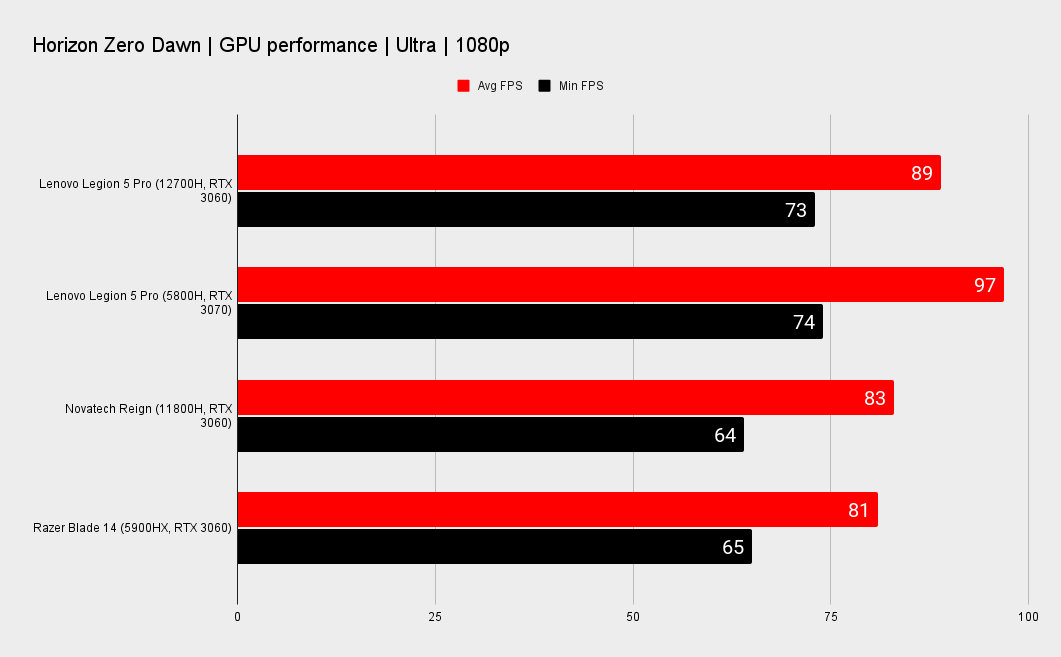
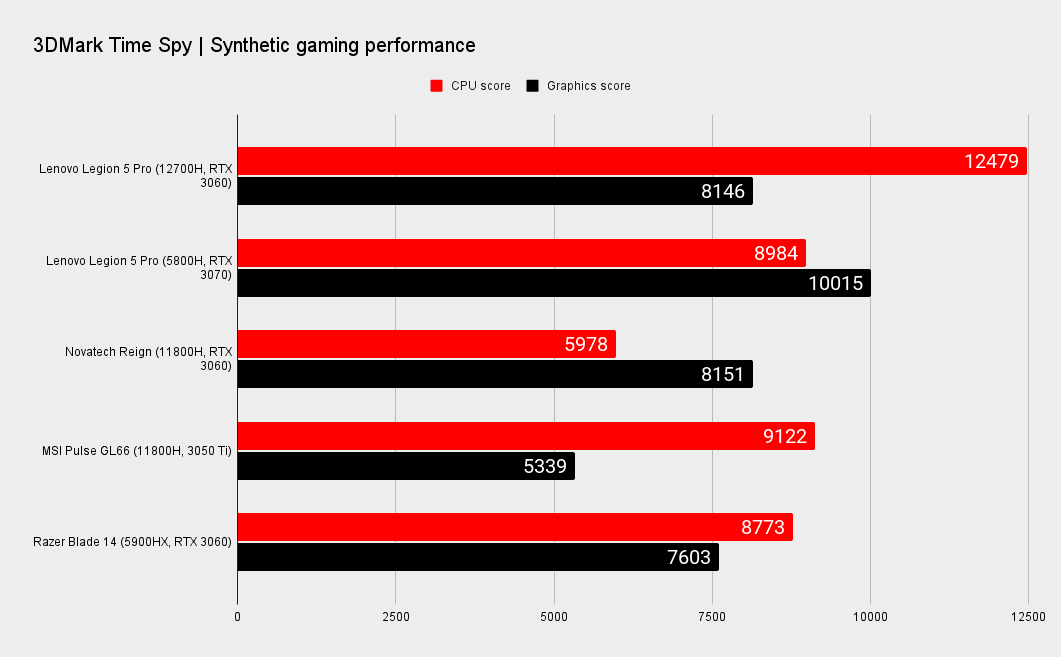
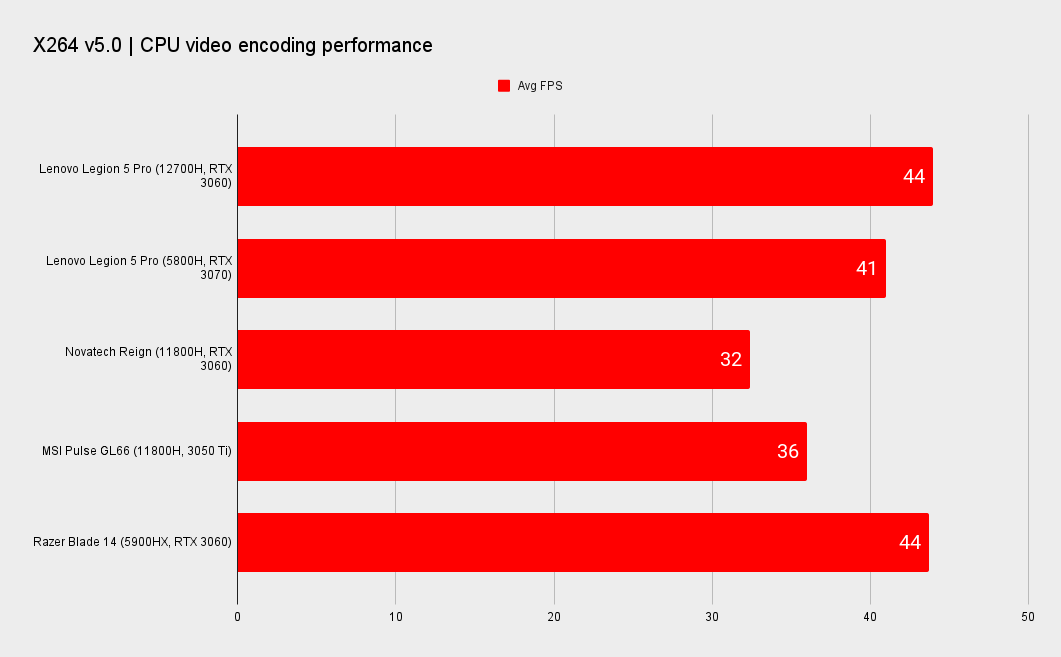
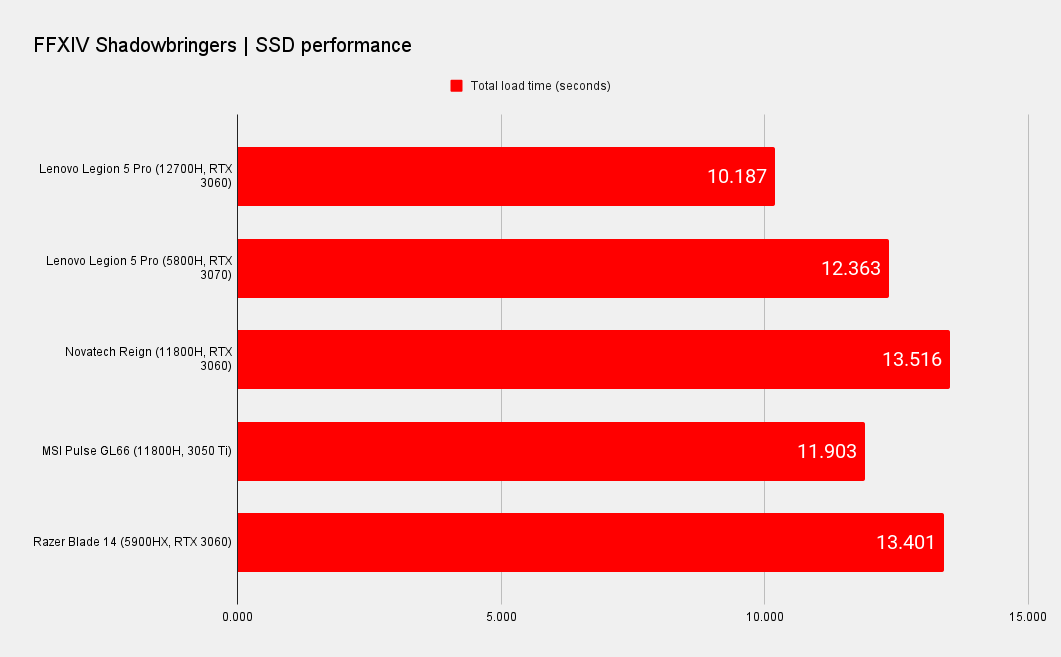
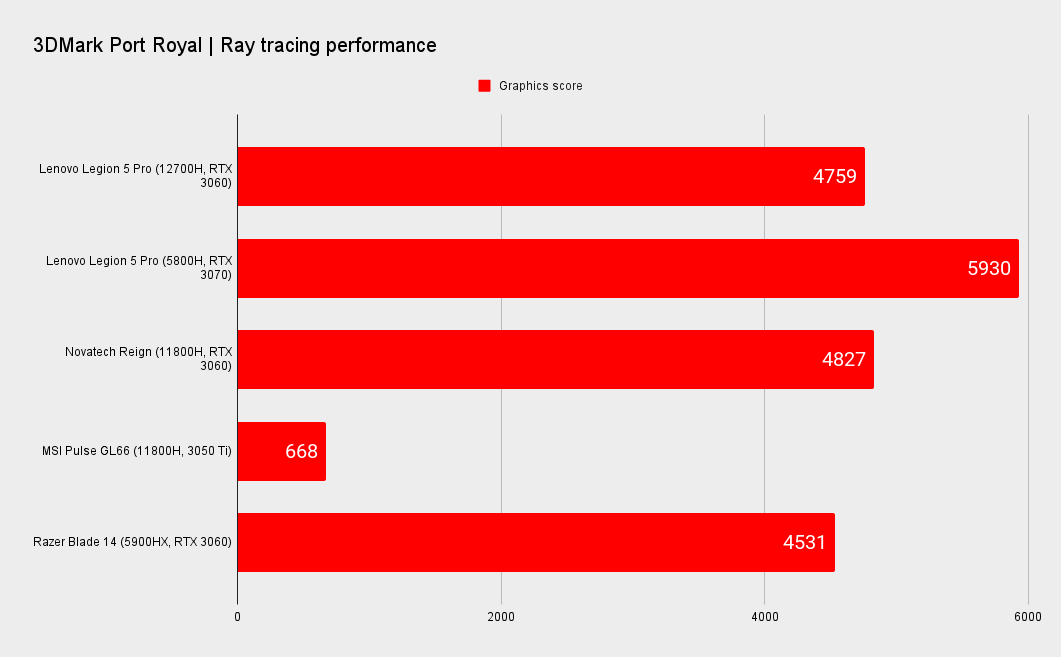
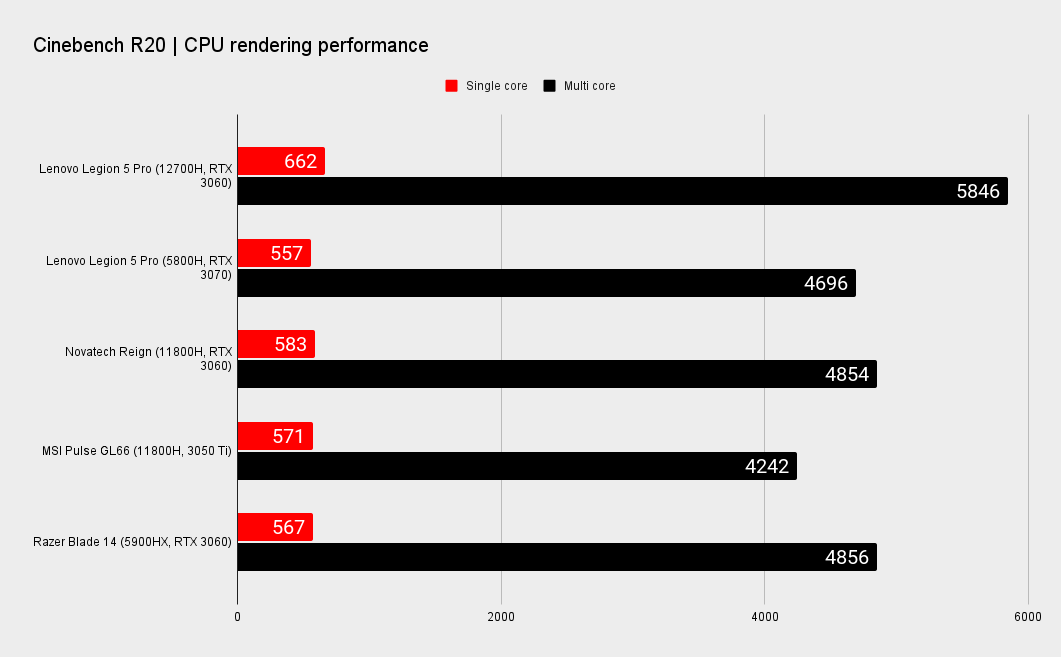
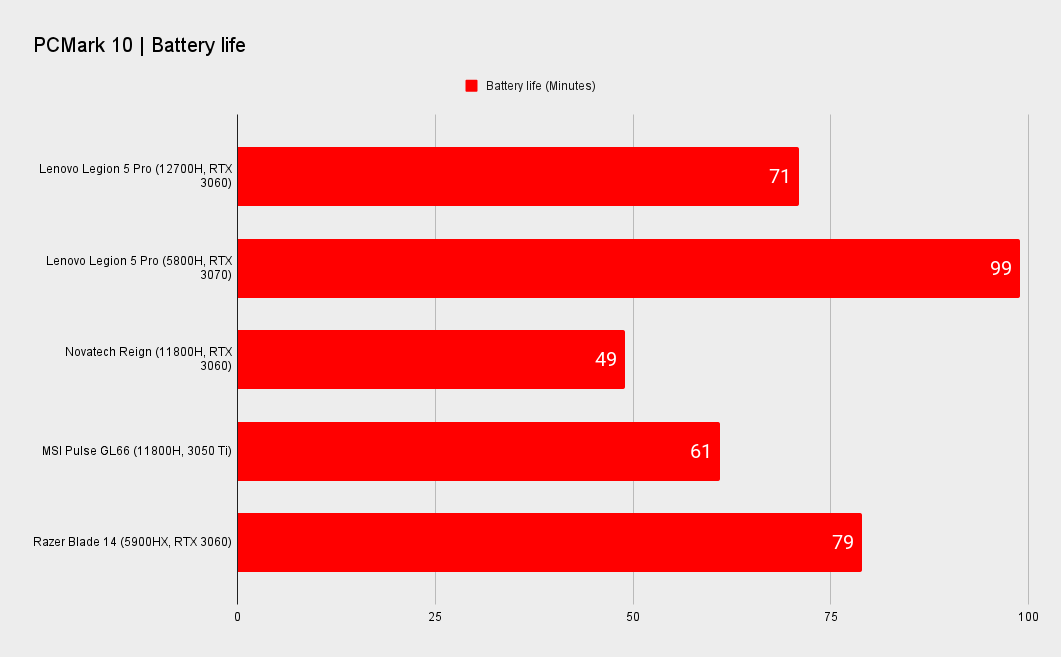
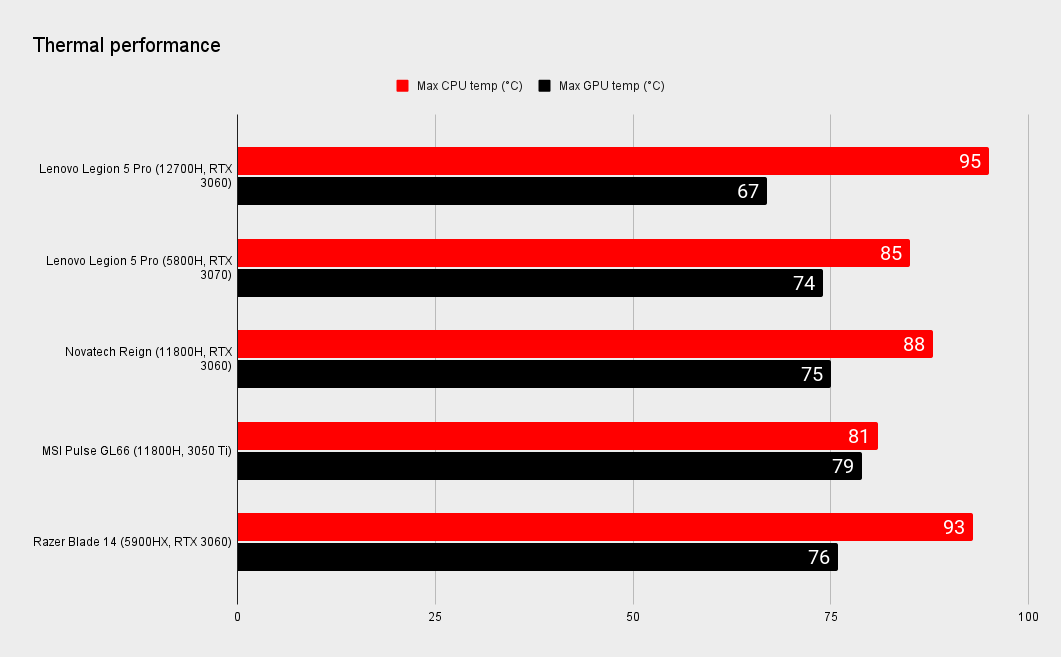
It looks great when it does deliver, however. The IPS panel is crisp, the colours are stunning, and the size of the screen does complement the 1600p resolution well. It's also a 16:10 panel, which I'm definitely a fan of in both laptops and desktop monitors. It doesn't feel a much larger chassis for the 16:10 panel, either.
The Legion 5 Pro definitely isn't the slimmest laptop around, nor the prettiest. Though it is well-built despite its size. You will have to carry with you a sizeable power brick with this model, too. A 300W brick seems a little on the tall side for an RTX 3060, and it's certainly not compact.
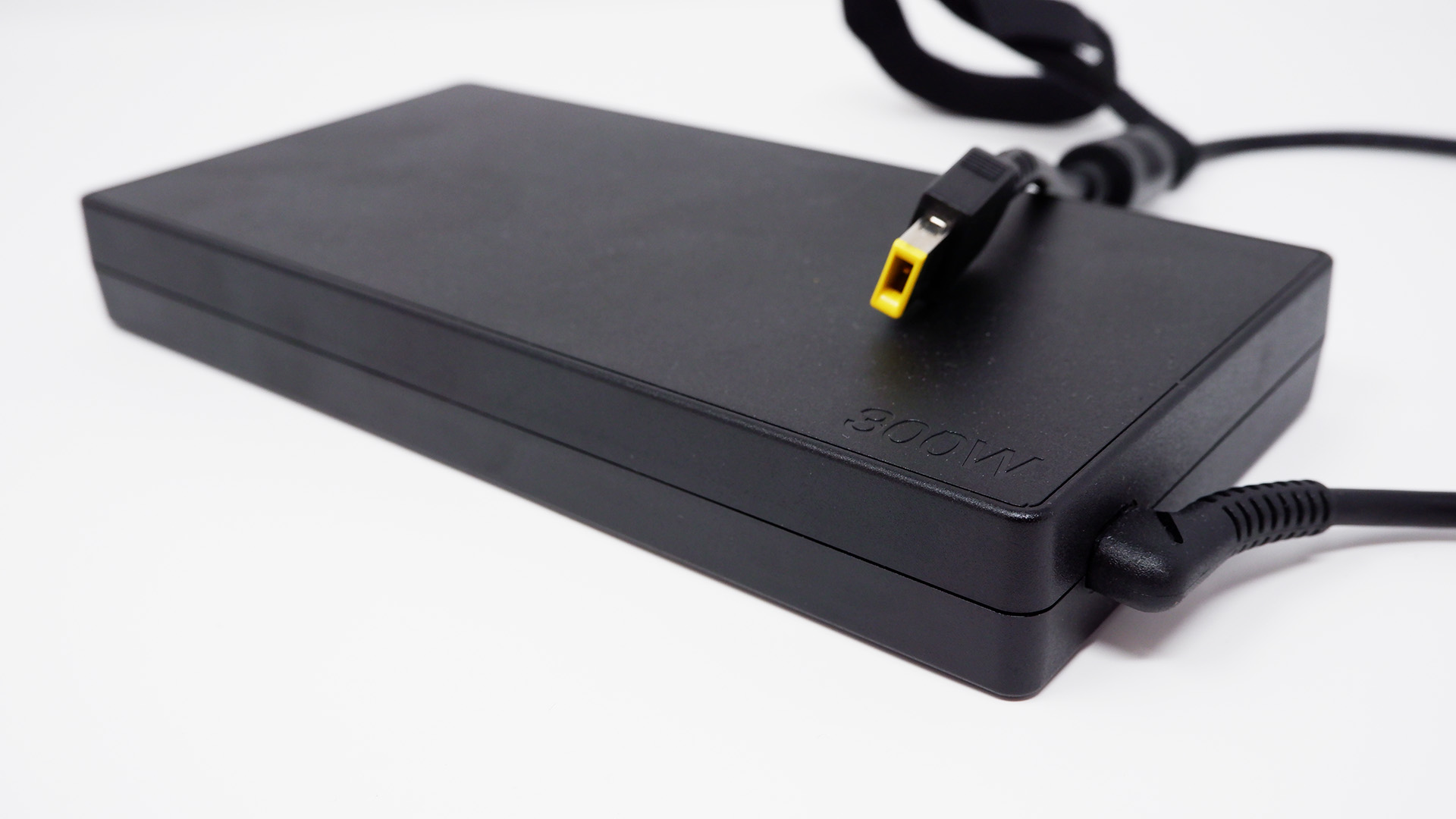
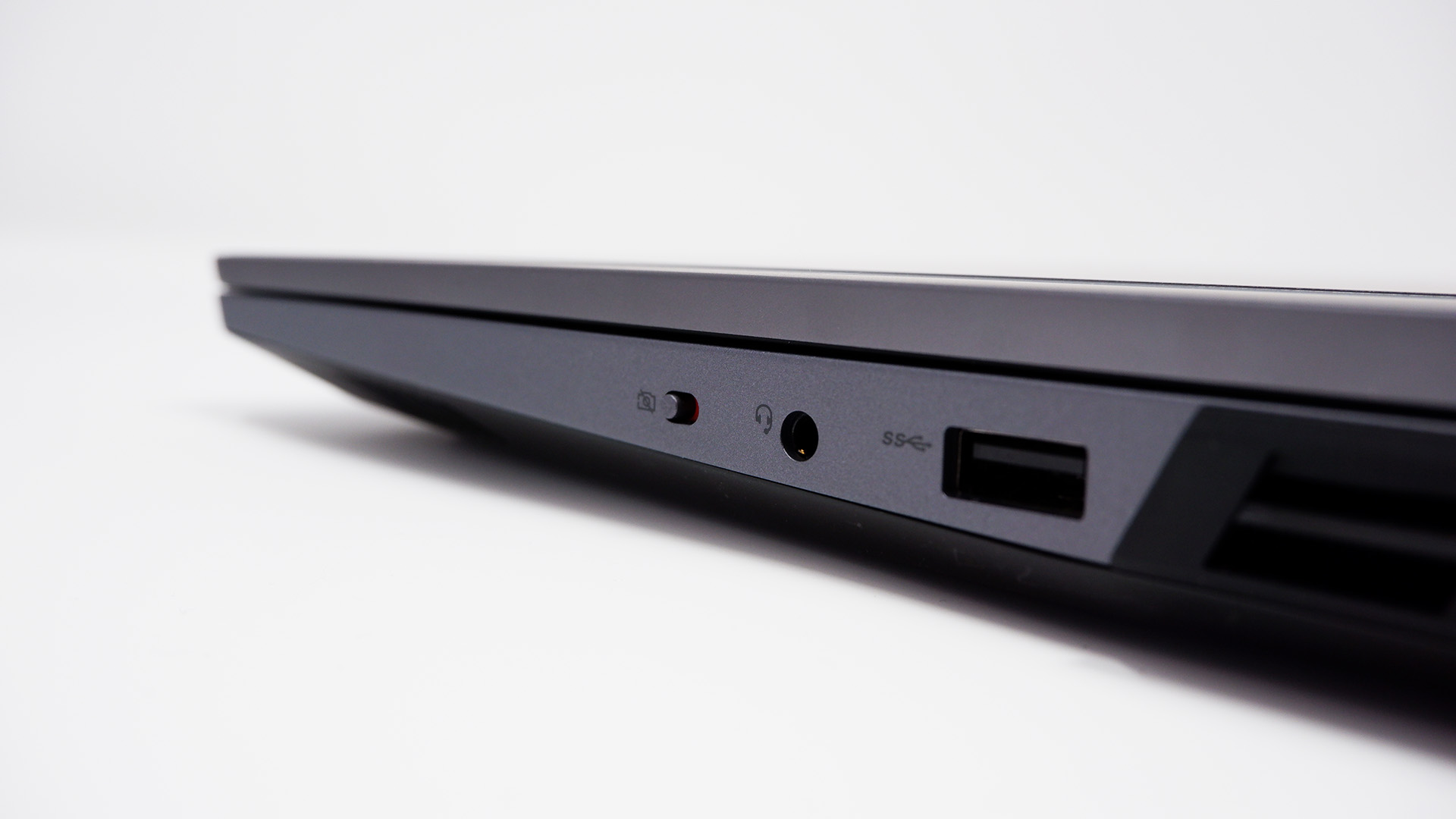
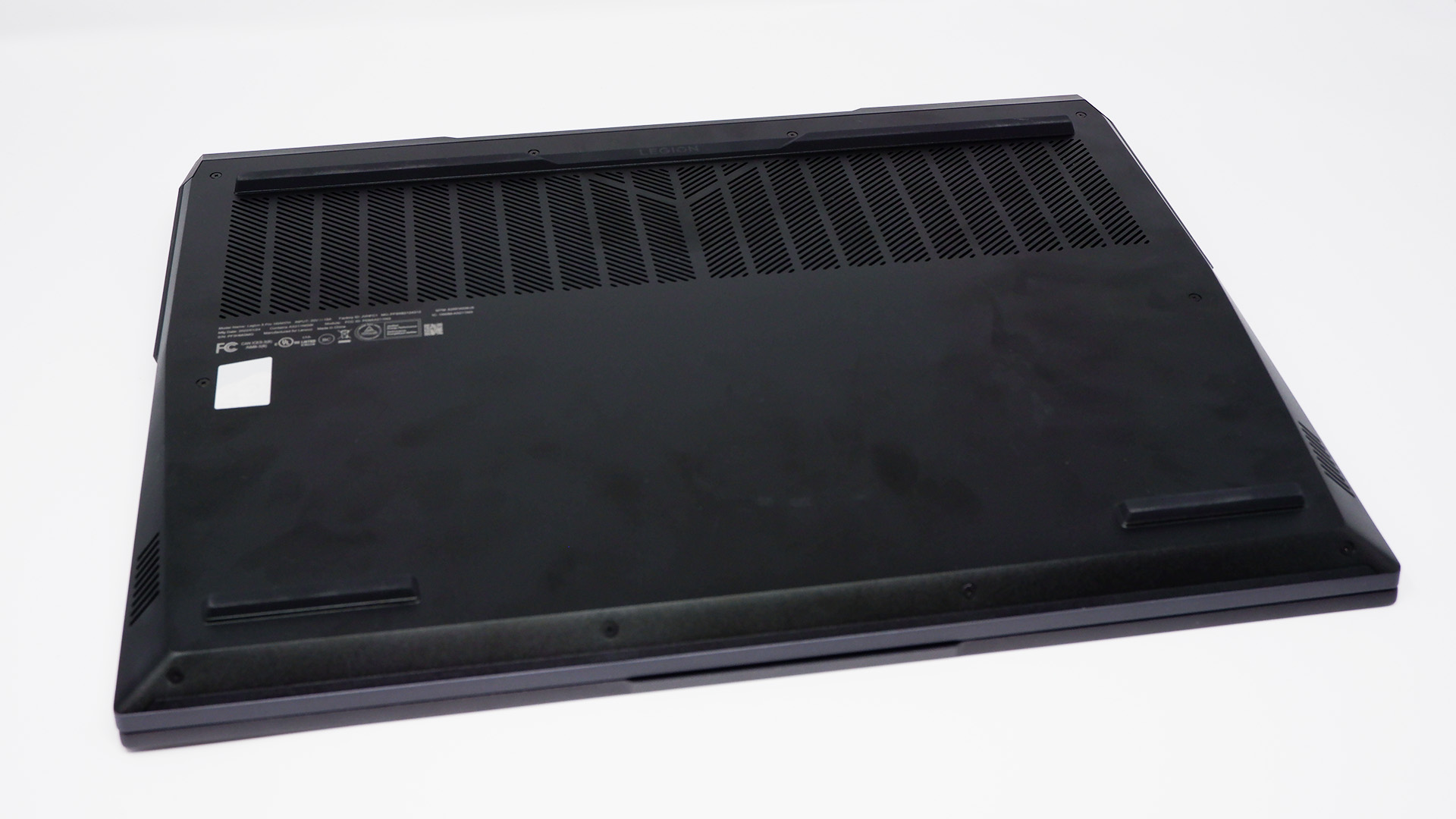
Most of the I/O is on the rear of the machine, keeping those pesky cables away from any gaming mouse you plug into it, and there are plentiful ports including multiple USB Type-C if you want to dock this machine on your desk to game on at the end of the day. I did, however, struggle to remove the underside of this laptop to gain access to the SSD and RAM, and I'd probably not recommend doing this yourself without some very steady hands and a lot of patience.
When it comes to cooling, the Legion 5 Pro chassis manages to keep the RTX 3060 at a steady 67°C, probably thanks to its fairly large size and potential to house a more powerful GPU. That's impressively low next to even other RTX 3060 gaming laptops we've reviewed. On the flip side, that 12th Gen CPU reached a scorching 95°C. That's within spec, so don't worry about that, but it's also a touch on the hot side.
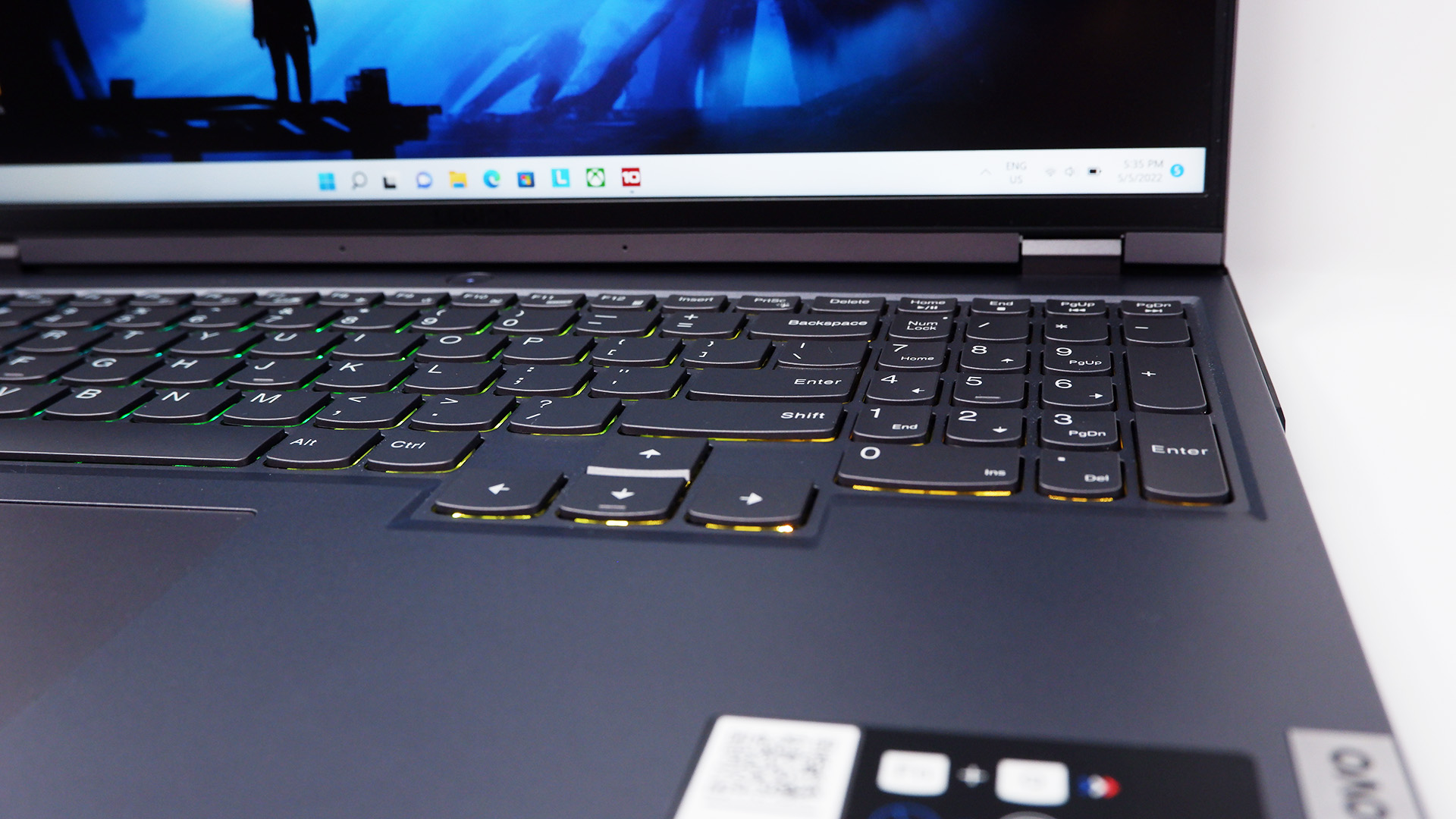
Overall the Legion 5 Pro is a hard sell at £1,600. The fact it's not quite readily available in the US yet is one obvious drawback, but even when it's more readily available in the UK, it's nowhere near convincing enough for me to wish to recommend it over cheaper models with similar specs and last-generation CPUs.
You can even look to Lenovo's own line-up from last year for proof of this: the Lenovo Legion 5 Pro 16-inch with an AMD Ryzen 7 5800H, RTX 3070, 16GB of DDR4 RAM, and 1TB SSD is available for £1,399 right now. It even has that 1600p IPS display, yet it's £200 cheaper than the newer 12th Gen model. We've reviewed that AMD version, too, and it's simply the faster gaming laptop. There's no getting past the fact the RTX 3070 is simply a more powerful GPU, even though the 2022 model has a superior CPU and RAM combo.
If you're considering a more productivity-based device, the Lenovo Legion 5 Pro 16-inch has a natural advantage courtesy of more cutting-edge technology. Though I feel it's not quite the part-gaming, part-productivity, all-round laptop it needs to be to justify its price tag for us PC gamers alone. It's well-built and performs great, and it offers everything a PC gamer might want in a gaming laptop in 2022, but cheaper last-gen models currently make a lot more sense money-wise.
A snappy laptop with impressive CPU performance. The Lenovo 5 Pro 16 does, however, struggle to justify its high cost for gaming alone in the face of cheaper alternatives.

Jacob earned his first byline writing for his own tech blog. From there, he graduated to professionally breaking things as hardware writer at PCGamesN, and would go on to run the team as hardware editor. He joined PC Gamer's top staff as senior hardware editor before becoming managing editor of the hardware team, and you'll now find him reporting on the latest developments in the technology and gaming industries and testing the newest PC components.
